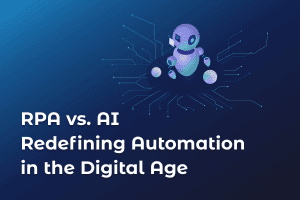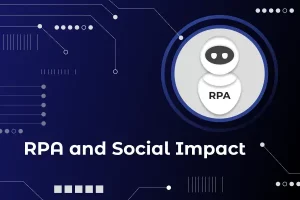Contents
- Natural Language Processing and Affective Computing: The Heart of RPA’s Emotional Intelligence
- Deciphering Emotions: Challenges and Progress
- RPA in Multimodal Interactions: Enhancing Connectivity
- Ethical Implications: Navigating the New Terrain
- Diverse Applications: From Healthcare to Entertainment
- Transforming Customer Relations: RPA’s New Role
- The Road Ahead: Advancing RPA’s Emotional Quotient
- Concluding Thoughts: A Future Shaped by Empathetic RPA
Natural Language Processing and Affective Computing: The Heart of RPA’s Emotional Intelligence
Robotic Process Automation (RPA), traditionally focused on streamlining tasks, is now evolving to include Natural Language Processing (NLP) and affective computing, crucial for emotional AI. NLP allows RPA systems to analyze human language intricacies, identifying emotional undertones in text and speech. Affective computing further enhances this by enabling the system to interpret and respond to these emotional cues. This combination propels RPA from mere task execution to understanding and responding to user sentiments, marking a significant step in creating more intuitive and human-like interactions in automation.
Deciphering Emotions: Challenges and Progress
One of the most significant challenges for empathetic RPA is the accurate recognition and interpretation of human emotions. This involves understanding complex facial expressions, voice modulations, and even contextual cues, which are inherently difficult for algorithms to decode. Current progress in RPA, however, shows promise, with advancements in machine learning and AI improving emotional recognition capabilities. Despite this progress, there remains a gap in achieving the nuanced understanding that comes naturally to humans, pointing to an ongoing journey in the development of emotionally intelligent RPA systems.
Deciphering Emotions: Challenges and Progress
Recognizing human emotions accurately remains a challenge for RPA, especially in interpreting complex facial expressions and vocal tones. Current RPA systems strive to overcome these limitations, but there’s a continuous need for advancements in technology to achieve a nuanced understanding of human emotions.
RPA in Multimodal Interactions: Enhancing Connectivity
Incorporating emotional intelligence in RPA transforms human-machine interactions, particularly in multimedia environments. It allows for more engaging and personalized communication, enhancing the user experience across various digital interfaces.

As RPA handles more emotional data, ethical concerns such as privacy, data misuse, and biases become paramount. Establishing robust ethical guidelines is crucial to ensure the responsible use of emotional AI in automation.
Diverse Applications: From Healthcare to Entertainment
Emotional AI in RPA finds diverse applications – from enhancing patient care in healthcare to creating tailored learning experiences in education and delivering more engaging content in the entertainment sector.



Transforming Customer Relations: RPA’s New Role
Emotionally intelligent RPA systems can significantly elevate customer relations and user experiences, leading to enhanced engagement and satisfaction.
The Road Ahead: Advancing RPA’s Emotional Quotient
Future advancements in RPA’s algorithmic development are essential for a more accurate perception and interpretation of human emotions. This requires continuous research and innovation to refine RPA’s emotional intelligence capabilities.
Concluding Thoughts: A Future Shaped by Empathetic RPA
As RPA evolves to understand human emotions, it opens new possibilities for humanized automation. While challenges remain, the potential for RPA to offer empathetic, intuitive interactions is a promising development in the automation landscape.
For deeper insights into RPA’s evolving role in understanding human emotions and its applications across various industries, explore our website. Dive into a world where technology meets empathy on our Scimus Blog, your portal to the future of empathetic automation.



